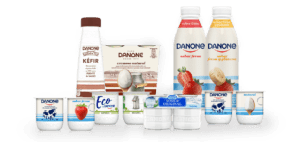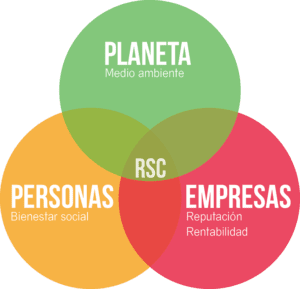Do you mind the origin of the items you buy at the supermarket? And the ethics of the brands in their production process? 60% of Spanish consumers say yes. In addition, they affirm that they would change the brand if it were accused of unethical. Thus forcing companies to work hard on their Corporate Social Responsibility. And you… Are you part of the remaining 40% or, on the contrary, would you act like the majority of the Spanish population? Do you want to know more about this topic? Next, we expose you all the data of the survey of OpenText.
Importance of the origin of the products
OpenText has provided us with a survey on brand ethics. And the consumer performance and influence Spaniards in it. As a global result they have found that six out of ten consumers would quit the brand. If she is accused of working with unethical suppliers. They would choose to look for another option that would be related in a responsible environment.
La pandemic has helped raise awareness among customers. With an increase of more than 10%. Before the spring 2020 quarantine, 77% of the population claimed to give priority to companies that specify their ethical sourcing strategies when buying a product. Just over a year later, this percentage increases. 88% of them say they plan to give priority to these companies.

Likewise, 75% of consumers agree that the Government should introduce regulations. One that forces companies to be more responsible. And, even, the majority thinks, 87%. That online retailers would have to eSpecify the ethics of the origin of your products. This function being influential in the purchase decision. For more than half of Spanish consumers.
Other survey data
The OpenText study affirms the involvement of Spanish society. The results show the importance they give to the knowledge of the suppliers. They need insurance that all suppliers in the production chain act ethically. Judging this way, 55%, the brand not only by its actions, but also by those of its suppliers. So much so that 82% of lrespondents would pay more. Even 25 and 50% more of the amount if the product has been obtained ethically.

The country of origin and its production are of concern much to the Spanish population. At 88%, exactly. Of these, 22% say that the ethics of brands has begun to interest them in the last year. 87% are even willing to give up various comforts. Like the speed of delivery times. With the aim of obtaining ethically produced products. Among these, the total of 26% would agree to acquire this commitment forever. While the rest assure that it would be dealt with rarely.
55% of consumers Spaniards strive to buy from local or national merchants. Online. Aware of the help that local businesses need. And to try reduce carbon footprint. In addition, we find that we Spaniards are very critical in this regard. Three quarters of the population agree that companies are responsible for the performance of suppliers. They have to be in charge of ensuring their ethical behavior.
Corporate Social Responsibility

Lou Blatt, Senior Vice President and CMO of OpenText states that “The ethically minded consumer is exercising an greater control over your purchasing power. Brands can no longer claim to act responsibly if they do not offer visibility into their operations or those of their suppliers ”. It is for this reason that most Brands and companies have a Social Responsibility (CSR) plan.
“CSR is a way of running companies based on the management of the impacts that its activity generates on its clients, employees, shareholders, local communities, the environment and on society in general ”. This is explained by the official website of the Observatory of Corporate Social Responsibility.

This plan is important as it is used as tool. To reduce the negative impact of brands and companies on rights. Labor, social, environmental rights. Over the Human rights, usually.
As a conclusion we draw that lsociety is forcing companies to act ethically. It does so when choosing and buying its products. Choosing the most ethically correct ones. Promoting competitiveness between brands. Thus forcing them to improve their actions and those of their suppliers.







